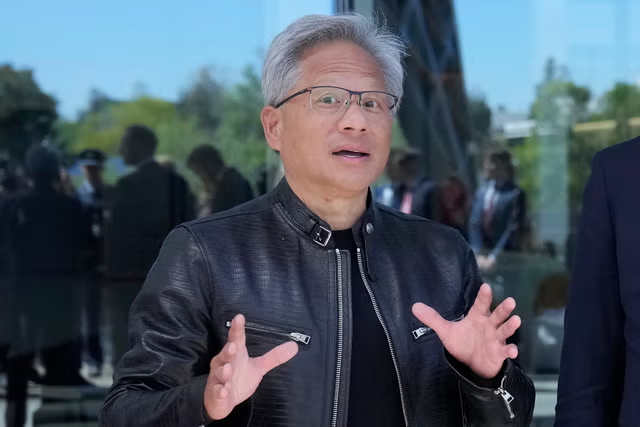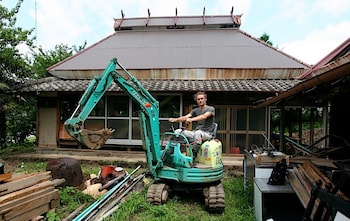A crisis in orange juice production is to drive up the cost of smoothies for millions of British shoppers, the boss of Innocent has warned.
Nick Canney, chief executive of the drinks maker, warned that drought, disease and extreme weather is squeezing companies that use the juice as a key ingredient – with higher costs in the shops an inevitable result.
Disruption has particularly hit Brazil - the world’s largest producer - and Florida.
Mr Canney said: “Over time, it will definitely move prices forward again. You have to try and work out how to keep it affordable for people. Genuinely, we’re not profiteering from it at all.
“We’re just trying to work out how to price it in the right way. Orange within the category [of food and drink] we’re in is 40pc of the business. You can’t not have orange juice.
“Prices will feed through, and you know, what will happen is you’ll obviously, whether it’s through promotions, or pack sizes or pricing, ultimately there will need to be changes ahead. Anyone who’s supplying or manufacturing orange juice will be under the same pressures as us.”
He said Innocent had not yet made any decisions about the future prices of its products.
Some drinks makers have been forced to seek out alternatives to orange juice. A spokesman for the British Soft Drinks Association (BSDA) called it “an unprecedented situation”.
“Producers are trying to find efficiencies to help absorb and avoid passing significant price rises onto consumers but inevitably there has been some inflation on the product due to the chronic difficulties around obtaining oranges for juicing.”
Writing in The Grocer magazine earlier this year, Sarah Baldwin, the chief executive of Purity Soft Drinks, said: “The situation is now such that few in the market will be able to continue to absorb any more costs, and many will be left with no choice but to pass them on to consumers.”
It comes after a difficult couple of years for Innocent. The company posted operating losses of £41.3m in 2022 as it grappled with falling sales, soaring costs and delays at a new £200m eco-factory in the Port of Rotterdam.
In accounts for that financial year, Innocent called it “perhaps one of the most challenging years for the business”.
Innocent has since enacted a major shake-up of its board, with its managing director and chief operating officer both leaving. A handful of new directors were parachuted in this year, in a move that Innocent has claimed would help it “refocus on its founding purpose”.
Mr Canney said: “We’ve been round the loop recently with all the challenges we’ve had. And we’ve said, ‘right, what’s the purpose of Innocent?’.”
He insisted the company’s 2023 results, which are yet to be published, would show a “huge turnaround”.

Innocent was founded in 1999 by Richard Reed, Adam Balon and Jon Wright, a trio of Cambridge students who sold smoothies from a stall at music festivals. It struck a chord with shoppers owing to quirky marketing and a focus on ethics and sustainability, growing steadily over the decade that followed.
These days it is one of the most recognisable soft drinks brands found on supermarket shelves, with annual sales in the hundreds of millions.
However, the company previously faced accusations of ‘selling out’ after Coca-Cola – one of the world’s biggest plastic polluters – bought a 20pc share in 2009 and went on to take full control in 2013.
Mr Canney, who worked for Coca-Cola before joining Innocent just under a decade ago, said: “You have to be realistic. Innocent now, we turn over €550m (£468m), employ nearly 1,000 people and we’re 25 years old. Whether it was a different business or a different investment mechanic, you have to have support to grow companies in that way.”
Innocent has also faced accusations of greenwashing in 2022, after activists complained to the advertising watchdog about a TV spot in which the business claimed buying its smoothies can help save the environment.
Mr Canney said: “Nobody wants to be challenged on what you’re trying to communicate on, especially when it’s core to the proposition of what we do around the environment.
“We’ve just tried to make sure that in an increasingly regulatory environment, that we’re just tighter and tighter on both the rules, but getting clarity on rules.”
In their claim, the activists alleged that Innocent was “trivialising” plastic pollution by suggesting buying its products could have a positive environmental impact.
Mr Canney argued the company was attempting to improve its green credentials, for example by making bottles with 50pc recycled plastic, but defended its use of the material.
He said: “It’s still the lowest carbon solution to put fresh products into”.
Disclaimer: The copyright of this article belongs to the original author. Reposting this article is solely for the purpose of information dissemination and does not constitute any investment advice. If there is any infringement, please contact us immediately. We will make corrections or deletions as necessary. Thank you.



